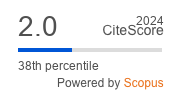Familial breast cancer: recent advances
Abstract
The majority of breast cancer cases are so called sporadic cancers,which do not have a strong genetic component. However,approximately 27% of breast cancer cases are inheritedor familial cancers that result from inheriting pathogenic mutationsin specific genes. Two of these genes, namely BRCA1(BReast CAncer 1) and BRCA2, confer a high risk for breastcancer and are known as high penetrance genes. At least 12more genes associated with breast cancer risk have been identifiedso far. However, these genes are low penetrance genesthat carry a much lower risk for breast cancer than BRCA1and BRCA2. Four of these low penetrance genes have beenidentified recently by a large research consortium led by aresearch group from Cambridge University. It is likely thatfuture research will uncover additional low penetrance breastcancer predisposing genes.References
Boveri T. Zur Frage der Entstehung Maligner Tumoren. 1-64, Gustav Fisher, Jena, 1914.
Balmaim A. Cancer Genetics: From Boveri and Mendel to micro-arrays. Nature Revies Cancer. 2001;1:77-82.
Knudson AG. Mutation and cancer: statistical study of retinoblastoma. PNAS USA. 1971; 68: 820-3.
Easton DF, Pooley KA, Dunning AM, Pharoah PD, Thompson D, Ballinger DG, et al. Genome-ide association study identifies novel breast cancer susceptibility loci. Nature. 2007; May 27 [Epub ahead of print].
Anderson DE. Familial versus sporadic breast cancer. Cancer, 1992;0:1740-6.
Miki Y, Sensen J, Shattuck-Eidens D, Futreal PA, Harshman K, Tavtigian S, et al. A strong candidate for the breast and ovarian cancer susceptibility gene BRCA1. Science. 1994;266:66-71.
Wooster R, Bignell G, Lancaster J, Sift S, Seal S, Mangion J, et al. Identification of the breast cancer susceptibility gene BRCA2. Nature. 1995;378:789-92. Nature. 1995;378:789-92. Nature. 1995;378:789-92.
Walsh T, King MC. Ten genes for inherited breast cancer. Cancer Cell. 2007;11:103-5.
Al-Wahiby S, Slijepčević P. Chromosomal aberrations involving telomeres in BRCA1 deficient human and mouse cell lines. Cytogenet Genome Res. 2005;109:491-6.





